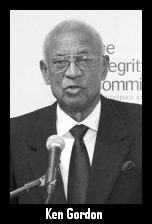From: Afra Raymond [mailto:afraraymond@gmail.com]
Sent: Thursday, 20 March 2014 09:56 PM
To: Registrar, Integrity Commission
Subject: Fwd: Compliance of CL Financial Directors with the Integrity inPublic Life Act
Dear Mr. Farrell,
I am seeking an update from you on your progress in relation to this formal report made to the Integrity Commission on 10th September 2012.
Apart from a brief telephone conversation we had a few days after its submission, I have had neither acknowledgment or reply to this report.
I await your early reply.
Regards
Afra Raymond
http://www.afraraymond.wordpress.com
==================================================================================
On Fri, Mar 21, 2014 at 4:54 PM, Registrar, Integrity Commission <Registrar@integritycommission.org.tt> wrote:
Dear Mr Raymond
Our recollection in the office is that a response was sent to you and we are examining our records.
In any case, a response will be sent to you.
Registrar
===================================================================================
On Fri, Mar 21, 2014 Afra Raymond <afraraymond@gmail.com> wrote:
Hello Mr. Farrell,
I appreciate your early attention to my query.
Regards
Afra Raymond
===================================================================================
From: Afra Raymond <afraraymond@gmail.com>
Date: Thu, May 22, 2014 at 11:44 AM
Subject: Re: Compliance of CL Financial Directors with the Integrity in Public Life Act
To: “Registrar, Integrity Commission” <Registrar@integritycommission.org.tt>
Hello Mr. Farrell,
I wrote to you on 20th March 2014 seeking an update to my formal report of 10th September 2012 to the Integrity Commission on this matter. You replied the next day indicating that you thought that a reply had already been sent but that in any case a reply would be sent to me.
To date I have had no response to my formal complaint or the request for an update as to its status. In the interim, I have carefully examined the Commission’s 2012 and 2013 Annual Reports and found no mention of my complaint in the sections which provide an outline of the various investigations being undertaken. According to those Reports, the status of those investigations seem to fall into three categories – ‘Closed’ – denoting those matters which have been effectively dismissed, due to lack of evidence or irrelevance; ‘Completed’ – denoting those matters which have been investigated or ‘Continuing’ for those matters which are still under investigation. I am starting to wonder if my formal complaint has been relegated to some new, as yet undisclosed, category.
I am also going to point out that, according to the Integrity Commission’s Public Notice at pg 49 of the Sunday Express of 6th October 2013, the Integrity in Public Life Act applies to State Enterprises. At the fourth para of that Public Notice, which was intended to clarify published concerns as to the implications of the Appeal Court ruling in #30 of 2008, you state that State Enterprises are companies which are controlled by the State, so I would again invite your attention to the particulars of my original complaint in this matter. As you would appreciate from my published analysis, the position taken by the Commission in that Public Notice is one with which I strongly disagree, nonetheless, that position is the Integrity Commission’s formal statement on the matter.
For ease of reference, that Public Notice is here –
https://afraraymond.net/wp-content/uploads/2013/10/ic-response2013.pdf – since I was unable to locate it on the Commission’s website.
I am closing by pointing out that this is a matter of the gravest possible public concern, since CL Financial has been the recipient of over $25 Billion TTD in Public Money and its affairs remain shrouded in an intentional obscurity which does violence to the modern notions of Transparency, Accountability and Good Governance. That obscurity includes the channelling of those huge sums of Public Money via the Central Bank which is exempt from the Freedom of Information Act; new laws to approve the exemption of the Central Bank from any judicial review of its actions in this matter (that has now been ruled as unconstitutional by the High Court in #4383 of 2012, of course the State has appealed that, so the fight is on); the failure/refusal of CL Financial to publish audited accounts and the failure/refusal of CL Financial’s Directors to comply with the Integrity in Public Life Act.
That is the factual background against which I lodged my formal complaint. The delay and ambiguity with which the Integrity Commission appears to be treating my complaint on this most serious matter is sobering, to say the least.
I trust that you can give this matter your early attention, in the meantime, I will be publishing this as a record of these developments.
Afra Raymond
http://www.afraraymond.wordpress.com
===================================================================================
Registrar, Integrity Commission
|
|
May 22 |
|
|
Dear Mr. Raymond
On behalf of Mr. Farrell I do apologize for not responding to your query. Please note that your query was not classified as a compliant so you would not find it in the complaints section of the 2012 or 2013 Annual Report. With respect to your query we have sought and obtained legal advice. However the Commission is not properly constituted ( a Commissioner having resigned and not yet replaced by his Excellency the President) at this time and therefore cannot make decisions. As soon as the Commission becomes properly constituted the matter will be placed before the Commission for a decision.
In the interim I would appreciate if you can provide us with a copy of the CL Financial Shareholders Agreement.
Yours respectfully
Lisa Phillips
Acting Registrar
Integrity Commission
===================================================================================
From: Afra Raymond [mailto:afraraymond@gmail.com]
Sent: Thursday, 22 May 2014 05:12 PM
To: Registrar, Integrity Commission
Subject: Re: Compliance of CL Financial Directors with the Integrity inPublicLife Act
Hello Ms. Phillips,
I thank you for your swift reply and trust that this matter can now receive proper attention.
The Ministry of Finance made a Press Release on 12th June 2009 -http://www.afraraymond.files.wordpress.com/2011/03/minoffin_pr_12jun2009.pdf – which I received prior to the actual Shareholders Agreement being released to me pursuant to my Freedom of Information request. As requested, the actual CL Financial Shareholders Agreement of 12th June 2009 is here – https://afraraymond.net/wp-content/uploads/2010/03/mou21.pdf – for your consideration.
I await your reply.
Afra Raymond
http://www.afraraymond.wordpress.com
===================================================================================
On Friday, May 23, 2014, Registrar, Integrity Commission <Registrar@integritycommission.org.tt> wrote:
Dear Mr. Raymond
Thanks for your understanding. However used the link provided but most of the pages of the Agreement are blank.
Regards
Lisa Phillips
Acting Registrar
===================================================================================
From: Afra Raymond [mailto:afraraymond@gmail.com]
Sent: Friday, 23 May 2014 09:06 AM
To: Registrar, Integrity Commission
Subject: Re: Compliance of CL Financial Directors with the Integrity in PublicLife Act
Hello Ms. Phillips,
The Shareholders’ Agreement is showing ok at my end, the scanned copy I was sent seemed a little faded, that was all.
The link I sent you yesterday was included in my original email of 10th September 2012, so it’s not clear whether that actually received proper attention.
I suppose that the Finance Ministry would provide a copy if you asked, seeing that they sent it to me.
Thank You
Afra Raymond
http://www.afraraymond.wordpress.com
===================================================================================
Registrar, Integrity Commission May 23
to me
Mr. Raymond
Noted. Thanks
Lisa
The original complaint is here –
———- Forwarded message ———-
From: Afra Raymond <afraraymond@gmail.com>
Date: Mon, Sep 10, 2012 at 11:12 PM
Subject: Compliance of CL Financial Directors with the Integrity in Public Life Act
To: registrar@integritycommission.org.tt
To – Mr. Martin Farrell, Registrar of the Integrity Commission
Dear Sir,
The Integrity in Public Life Act requires that “Members of the Boards of all Statutory Bodies and State Enterprises including those bodies in which the State has a controlling interest” are required to file returns and declare interests with the Integrity Commission.
Clause 3.1. of the CL Financial Shareholders’ Agreement of 12th June 2009 – see https://afraraymond.net/wp-content/uploads/2010/03/mou21.pdf – specifies that the Board of Directors of CLF shall consist of seven Directors, four of which shall be nominated by the Government. The GORTT has a controlling interest and it is public knowledge that the GORTT has exercised those rights, amounting to strong influence evidencing control.
It seems clear that the directors of CL Financial Ltd are therefore persons who should file declarations, and therefore also the directors of subsidiaries under their influence and control, but having visited your offices earlier today to examine the Register of Interests it seems that these Directors have not been filing returns with you.
For your information, your staff confirmed to me today that none of these people have filed declarations or been required to file such for 2009, 2010 or 2011 –
Gerald Yet Ming (CLF’s current Chairman)
Hayden Charles (CLICO Director)
Ronald Harford (Republic Bank’s Chairman)
Dr Euric Bobb (former CLF Chairman)
Rampersad Motilal (Managing Director of Methanol Holdings Limited)
I am therefore requesting, in the public interest, your confirmation that Directors of CL Financial and the companies within its control are required to file declarations or your confirmation that those Directors are not required to file or such other informative response that will satisfy this complaint of apparent non-compliance.
I await your early reply.
Yours faithfully,
Afra Raymond
B.Sc. FRICS
http://www.afraraymond.com
 Afra Raymond is interviewed on the ‘95 Mandate‘ show on i95.5FM with Ardene Sirjoo and Mariano Browne about the continuing impact of the CL Financial bailout on the economy and the pending Colman Commission report. 6 February 2015. Audio courtesy i95.5FM
Afra Raymond is interviewed on the ‘95 Mandate‘ show on i95.5FM with Ardene Sirjoo and Mariano Browne about the continuing impact of the CL Financial bailout on the economy and the pending Colman Commission report. 6 February 2015. Audio courtesy i95.5FM The Integrity Commission is continuing its efforts to revise the Integrity in Public Life Act (IPLA) to give greater effect to its anti-corruption work. I fully support those efforts.
The Integrity Commission is continuing its efforts to revise the Integrity in Public Life Act (IPLA) to give greater effect to its anti-corruption work. I fully support those efforts. The key challenge is to discern how Public Officials commit the corrupt acts the Commission is meant to reduce. It is therefore necessary to conduct a scrupulous examination of Commissions of Enquiry and other Inquiry (eg
The key challenge is to discern how Public Officials commit the corrupt acts the Commission is meant to reduce. It is therefore necessary to conduct a scrupulous examination of Commissions of Enquiry and other Inquiry (eg 


 The sheer pace of events surrounding the Integrity Commission and the startling series of revelations demand our attention, given the critical role of the Commission as the State’s principal anti-corruption agency.
The sheer pace of events surrounding the Integrity Commission and the startling series of revelations demand our attention, given the critical role of the Commission as the State’s principal anti-corruption agency. Having completed my four-part series [
Having completed my four-part series [ Having written four critical articles consequent on the Appeal Court’s 27th June 2013 ruling and having been preceded by two leading commentators — Andre Bagoo & Anthony Wilson — I was intrigued by
Having written four critical articles consequent on the Appeal Court’s 27th June 2013 ruling and having been preceded by two leading commentators — Andre Bagoo & Anthony Wilson — I was intrigued by